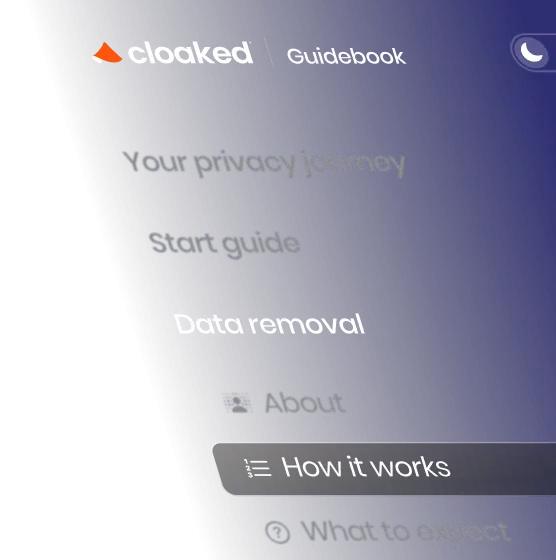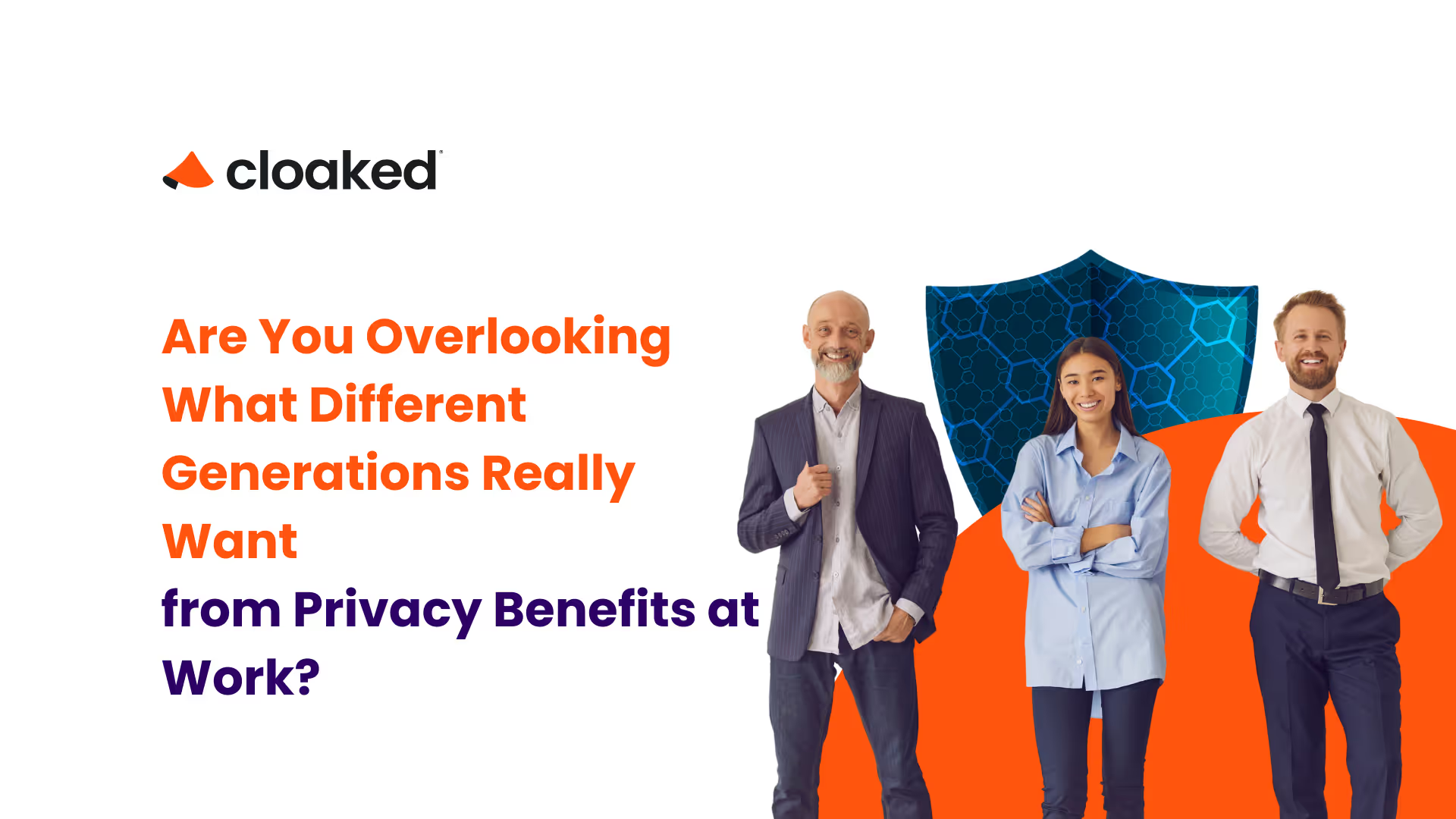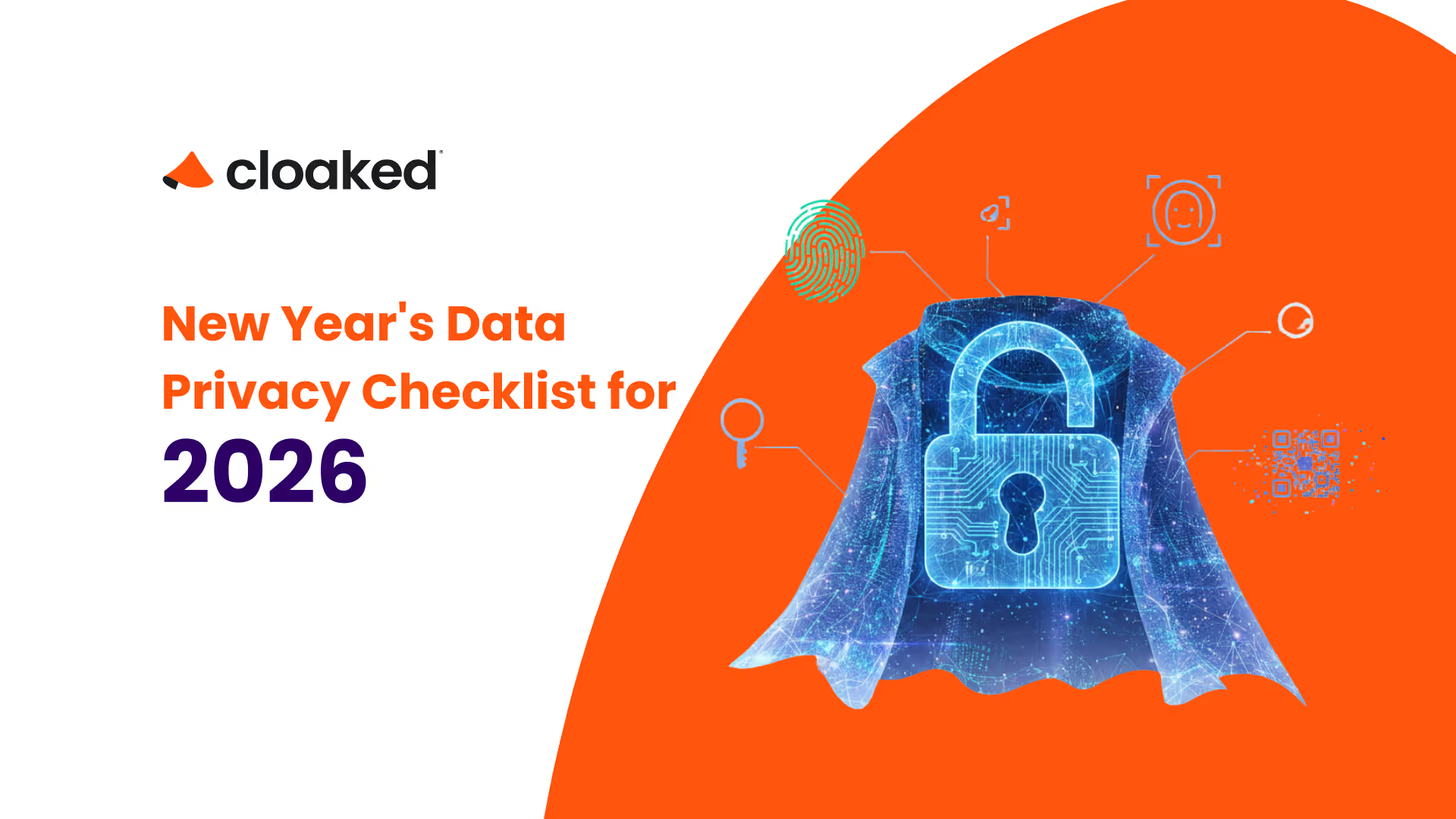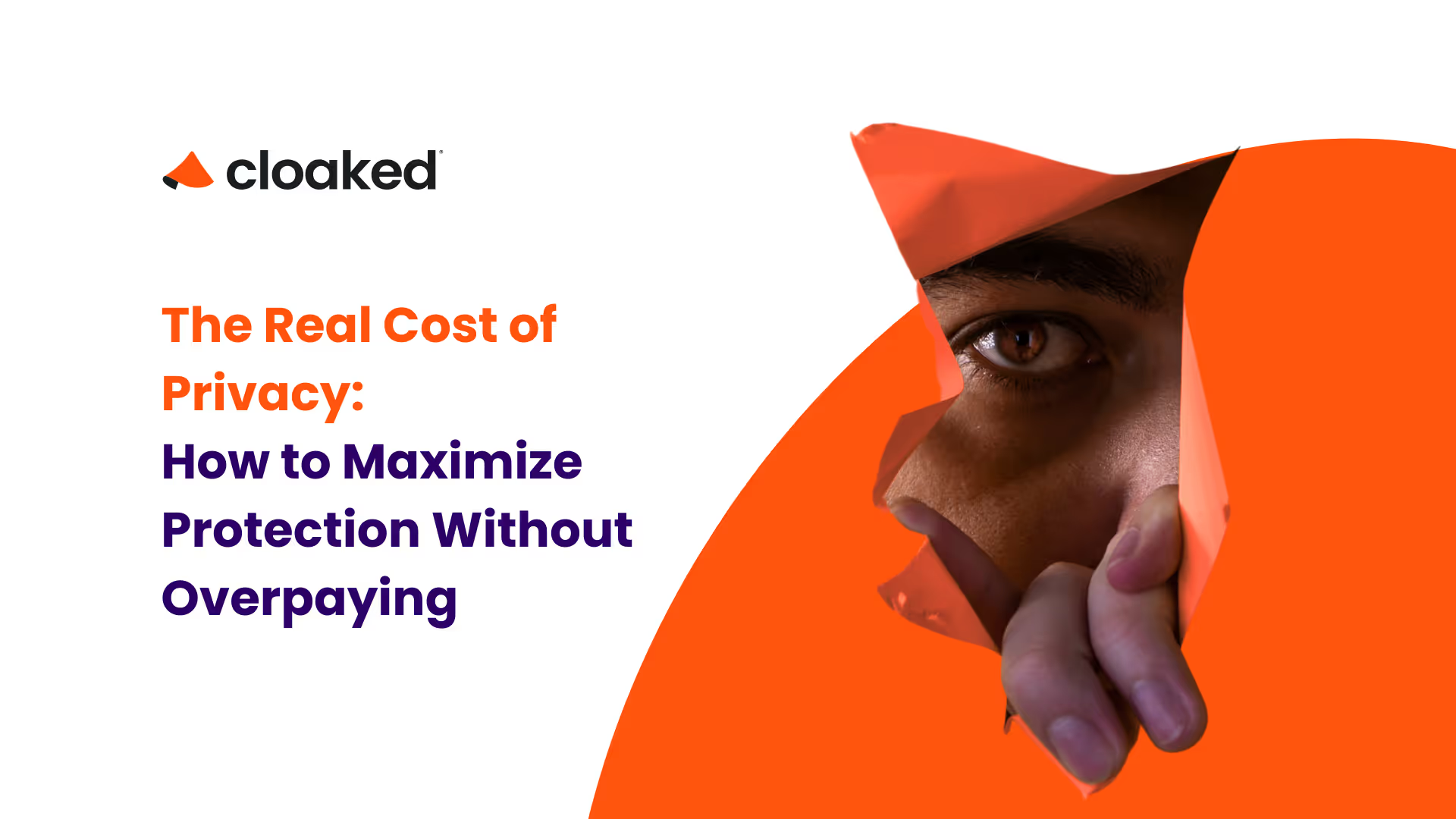In an age where privacy is paramount, understanding what different generations seek from privacy benefits can be a game-changer for your HR strategy. Cloaked’s recent survey sheds light on the varied preferences across age groups, revealing insights that could redefine how you approach employee benefits. From Gen Z's preference for family perks to the older generation's desire for control, these findings are not just statistics—they're a strategic roadmap for any forward-thinking organization.
Understanding Generational Privacy Preferences
Privacy at work isn’t a one-size-fits-all deal—different generations want different things. If you’re leading HR or building benefits, you can’t afford to guess. Cloaked’s survey makes this crystal clear: age isn’t just a number when it comes to privacy expectations.
Key Findings from Cloaked’s Survey:
- Gen Z leans heavily toward family-related perks over traditional privacy protections.
- Boomers value direct control over their personal information.
These aren’t just passing preferences. They reflect deep-rooted attitudes shaped by life experiences and the digital environments each generation grew up in. HR teams who lump all employees together or ignore these distinctions risk missing the mark—sometimes by a wide margin.
Why It Matters:
- Retention: Employees who feel their privacy needs are respected are more likely to stick around.
- Engagement: Benefits that align with actual concerns—be it protecting family or giving more control—drive real engagement.
- Trust: When people see benefits that genuinely reflect their priorities, trust in the organization goes up.
Tailoring privacy benefits to these generational insights isn’t just smart. It’s essential for building a benefits package that works for everyone, not just the average. Cloaked’s research offers a practical starting point for this shift, giving organizations the data needed to back up meaningful change.
Gen Z: Family Perks Over Privacy
Gen Z is rewriting the rulebook when it comes to workplace benefits. The old days, where privacy controls or individual autonomy topped the wishlist, are fading. For younger workers, family perks stand out as the real game changers.
Why Family Perks Trump Privacy
Gen Z grew up in an always-online world. Sharing life updates, locations, and even opinions on public platforms is second nature for many. Privacy, while still important, isn’t the emotional trigger it was for previous generations. Instead, this group looks at work through a different lens—one focused on relationships and support.
- Family means security: Many Gen Z employees prioritize the well-being of their families, whether that's parents, children, or siblings.
- Support structures matter: They want benefits that reflect real-life needs, not just digital safeguards.
- Privacy is assumed, not celebrated: Most expect privacy as a baseline, not a selling point.
How This Shapes Benefit Packages
If you’re designing benefits for Gen Z, it’s time to think bigger than password managers or VPN subscriptions. Packages that directly help families resonate more.
What Works
- Parental leave for all caregivers: Not just for new mothers—think fathers, adoptive parents, and those caring for elders.
- Flexible schedules: The chance to work around family commitments is invaluable.
- Mental health support: Programs that cover family counseling, not just individual therapy.
- Dependent care assistance: Childcare, elder care, or even pet care subsidies.
- Family health plans: Comprehensive coverage that includes mental, dental, and vision for dependents.
Examples of Family-Oriented Perks Gen Z Wants
- Paid family bonding time: Extra days off to spend with loved ones.
- Remote work options: The freedom to be present for family milestones.
- Educational support: Scholarships or tuition assistance for employees’ children.
- Wellness programs: Gym memberships or wellness stipends that cover family participation.
Where Privacy Still Matters
While Gen Z might not shout about privacy, it’s still in the background. Tools that protect family information—like Cloaked’s ability to create secure, private digital identities for each family member—are quietly appreciated. These features let families enjoy benefits without worrying about data leaks or digital snooping, striking a smart balance between convenience and control.
The key takeaway: Gen Z isn’t ignoring privacy, but they’re putting family first. If you want to attract and retain young talent, make sure your benefits speak to what matters most to them—at home and at work.
Millennials and Data Breaches: A Growing Concern
Why Millennials Are Worried
Millennials grew up with technology, but their comfort doesn’t mean they trust it blindly. According to Cloaked's recent survey, data breaches are one of the top privacy worries for Millennials. It’s not just about passwords getting stolen—many fear what happens when their personal information is exposed or misused by third parties.
Anecdotally, many Millennials remember the fallout from headline-making breaches: credit scores tanked, identities stolen, and endless spam calls. These experiences shape a real anxiety around digital privacy.
Survey Highlights
- Over half of Millennials rank data breaches as a leading privacy risk.
- They’re more likely than older generations to avoid sharing information if they suspect poor data security.
- Trust is fragile; once lost, it’s rarely restored.
Solutions That Matter
Addressing these worries isn’t optional—it’s essential for attracting and keeping Millennial talent. Here’s what makes a difference:
- End-to-End Encryption: Data should be unreadable to outsiders, even if intercepted.
- Minimal Data Collection: Only ask for what’s absolutely necessary—no more, no less.
- Instant Data Deletion: Give users power to erase their information, not just deactivate accounts.
Cloaked, for instance, provides a platform that lets users generate masked emails and phone numbers. These digital “aliases” keep real information private, even if a breach occurs. If a service is compromised, only the alias is exposed—not the person behind it.
Why Trust Hinges on Privacy
Millennials are quick to walk if they feel their privacy isn’t respected. Companies that ignore these concerns risk more than just a bad review—they risk losing employees and customers for good. Building trust starts with showing you take data breaches seriously and offering real tools, like those from Cloaked, that put control back in users’ hands.
Key Takeaway: For Millennials, privacy isn’t a buzzword. It’s a non-negotiable. Solutions that address data breach fears directly are critical to earning—and keeping—their trust.
Boomers: The Need for Control
Baby Boomers (born 1946–1964) have a clear preference: they want control over their personal information at work. For many, privacy isn't just a checkbox—it's about trust, respect, and autonomy. When they feel in charge of their own data, their job satisfaction rises.
Why Control Matters to Boomers
Boomers grew up before the digital explosion. They remember a time when privacy meant locked filing cabinets, not endless online forms. This background shapes how they see workplace technology and privacy tools today.
- Personal Boundaries: Many Boomers are uncomfortable with constant digital tracking or mandatory data sharing. They want to decide who sees their information and when.
- Trust Issues: Over-sharing or forced transparency can lead to distrust. When employers let Boomers set privacy preferences, it signals respect.
- Sense of Security: The ability to manage personal data helps Boomers feel secure—at a time when data leaks and breaches are front-page news.
Features That Appeal to Boomers
If you’re designing privacy controls for Boomers, focus on clarity and directness. The easier it is to use, the more likely they are to engage with it.
- Clear Consent Options: Simple yes/no choices for data sharing, instead of confusing legalese.
- Granular Controls: Let users pick exactly what information is shared—contact details, health info, or workplace habits.
- Transparent Settings: Show exactly what’s collected and who has access.
- Easy Opt-Outs: Quick ways to change settings or withdraw consent, without hunting through menus.
Cloaked, for example, lets users set fine-tuned privacy controls over their personal data at work. Employees can see what’s being collected, make quick changes, and even mask sensitive details. These features strongly address Boomers' desire for autonomy and transparency.
Control and Job Satisfaction
When Boomers feel in command of their privacy, job satisfaction improves. Here’s why:
- Reduced Stress: Less worry about data misuse means more focus on the job.
- Stronger Loyalty: Employees who feel respected stick around longer.
- Higher Engagement: When privacy tools work for them—not against them—Boomers are more likely to embrace digital workflows.
Ultimately, giving Boomers control over their workplace privacy isn’t just a nice-to-have. It’s a direct path to happier, more committed employees.
Crafting a Multi-Generational Privacy Benefits Package
Building a privacy benefits package that works for every generation in your workforce isn’t just a nice-to-have—it’s a must. Employees of different ages look at privacy with their own set of concerns and expectations. Cloaked’s recent survey shines a light on what really matters to each group, offering a playbook for organizations that want to get privacy benefits right.
Understanding What Each Generation Wants
Every age group has its own privacy hot buttons. Here’s what Cloaked’s survey uncovered:
- Gen Z and Millennials: These employees are digital natives. They want control over their online presence and value tools that let them manage what personal data is shared with apps, websites, and even their employer.
- Baby Boomers: Many in this group prefer clear explanations and practical support. They want to know exactly how their data is handled and expect direct customer support if anything goes wrong.
Steps to Create an Effective Privacy Benefits Package
1. Start with Employee Feedback
Go straight to the source. Use surveys and focus groups to gather honest opinions about privacy worries and preferences. This helps avoid guesswork and makes employees feel heard.
2. Offer Flexible Privacy Tools
Don’t settle for a one-size-fits-all solution. Let employees pick from a menu of privacy tools—think encrypted email, disposable phone numbers, or digital identity vaults. For example, Cloaked offers a platform where users can generate unique phone numbers and emails, giving every employee a real sense of control.
3. Educate and Empower
Privacy tech is only helpful if people understand how to use it. Run regular workshops, send out simple guides, and make resources easy to find. Make sure employees know how to protect themselves, not just at work but in their personal lives, too.
4. Communicate the Value
Spell out the benefits in clear language. For Gen Z, focus on digital autonomy. For Gen X, highlight identity protection. For Boomers, emphasize transparency and support.
5. Review and Update Regularly
Privacy threats shift fast. What works this year might be outdated next year. Set a schedule to review your privacy offerings, using feedback and new research to keep your benefits package fresh and effective.
Leveraging Survey Insights for Loyalty and Satisfaction
Cloaked’s data shows that when employees feel their privacy concerns are respected, loyalty grows. People want to know their employer cares about more than just productivity. Here’s how you can use these insights:
- Tailor communication: Use age-relevant messaging. Don’t blast the same privacy tip to everyone.
- Highlight real benefits: Show employees how privacy tools reduce stress and protect their families, not just their work data.
- Lead by example: Encourage leadership to use and talk about these tools openly, making privacy a visible priority.
Organizations that take privacy seriously—and prove it with practical benefits—build trust. And trust, more than any buzzword, is what keeps people sticking around.
Cloaked FAQs Accordion
Frequently Asked Questions
Privacy benefits protect employees’ personal and family data, reduce stress, and build trust. When these benefits are tailored to different generations, they also improve retention, engagement, and loyalty.
Gen Z prioritizes family-related perks—such as dependent care assistance, family health coverage, and tools that protect family data. Privacy is expected as a baseline but isn’t their primary focus compared to family support.
Millennials are most worried about data breaches and identity theft. They want employers to provide encrypted communication, masked digital identities, and instant data deletion tools to safeguard personal and financial information.
Gen X employees value financial and identity protection tools like credit monitoring, strong authentication, and encrypted communications. They are especially cautious about identity theft and fraud.
Boomers grew up before the digital era and prefer clear, direct privacy controls. They want transparency, easy consent options, and the ability to decide who can access their data and when.
HR leaders should use employee surveys, offer flexible privacy tools (like data masking, secure emails, and family coverage), and educate staff on privacy practices. Tailoring benefits to generational needs ensures broader adoption.
When employees see that their unique privacy concerns are addressed, they feel respected and valued. This strengthens trust in the employer, improves job satisfaction, and increases engagement.
Different generations have different privacy priorities. A blanket approach risks alienating employees or leaving major concerns unaddressed. Customizing benefits by age group maximizes impact.
Cloaked provides flexible privacy tools such as masked emails, disposable phone numbers, identity vaults, and customizable sharing controls, giving every generation a solution that matches its priorities.
Privacy threats evolve quickly. Employers should review and refresh privacy benefits annually, using employee feedback and new tools to stay relevant and effective.


















